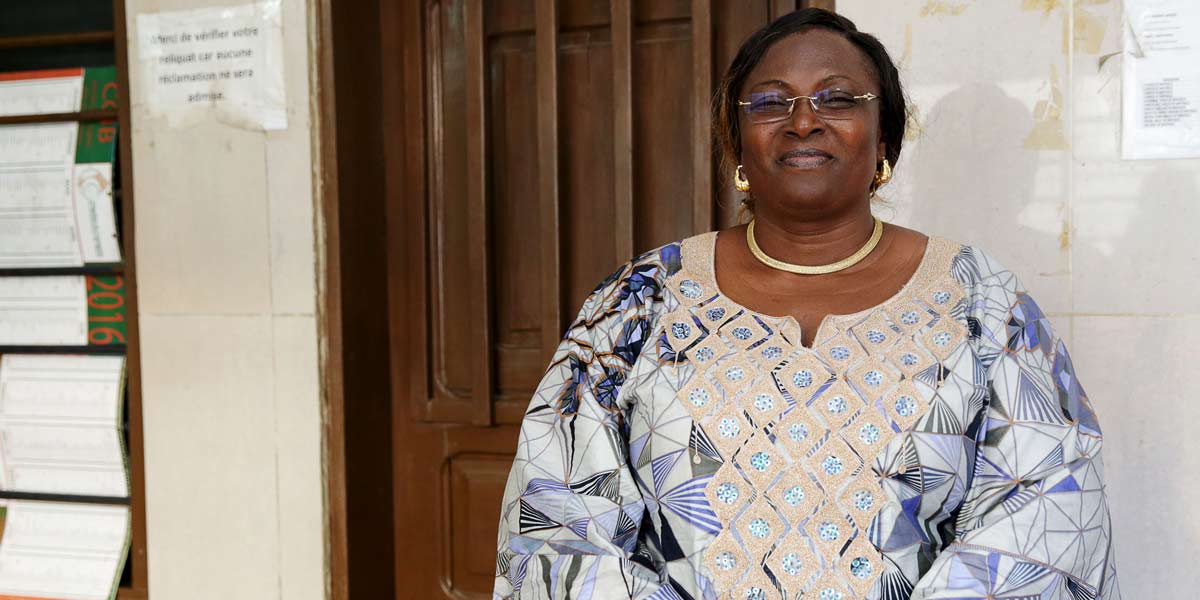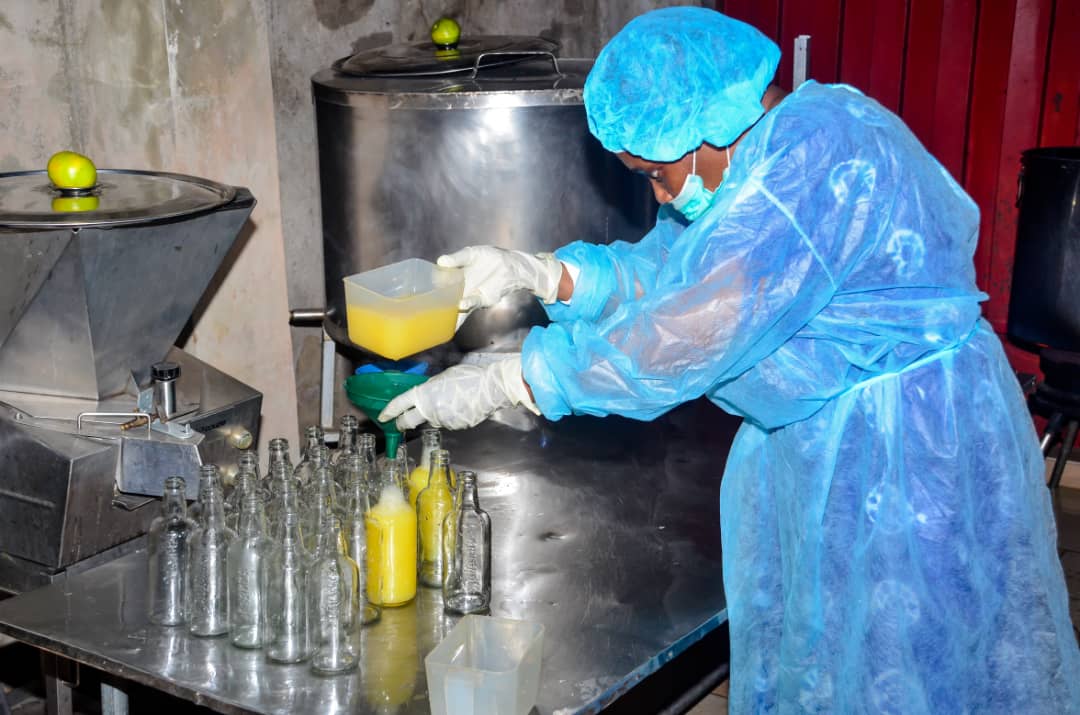
MCC
Madame Awahou Codjo, the owner of AWA Fish, continues to benefit from MCC’s long partnership with Benin.
Over the past several decades, Benin has made enormous advances. In 1991, the country transitioned from dictatorship to democracy, and since then has organized the peaceful transfer of political power through the ballot box. Since its transition to democracy, Benin has also made important economic strides, and for nearly 20 years, MCC has been a partner with Benin in its journey towards prosperity.
Since 2006, MCC has provided nearly $900 million to Benin to strengthen the country’s economy and lift its people out of poverty. MCC’s partnership with Benin has not only boosted the country’s economic future, but has also produced dramatic changes for individuals in Benin as they look to secure a brighter future for themselves and their families.
Madame Awahou Codjo, the owner of AWA Fish, a small business in the port of Cotonou, was among an estimated 2.2 million people benefitting from a $301.8 million compact signed by MCC and Benin in 2006 to increase investment and private sector activity by improving access to finance, expanding the port, promoting land security and creating a more efficient judicial system.
Under that initial compact, AWA Fish received a grant that helped Codjo grow her business by financing the purchase of two walk-in freezers, one generator, and two motorized boats, along with training in accounting and related software.
AWA Fish’s grant was part of a $15.5 million MCC-funded project to increase productivity, profitability, and access to finance for micro-, small- and medium-sized businesses, which are the backbone of Benin’s economy. But the economic lift that the MCC – Benin partnership provided to her business did not end there.
In 2015, MCC and the Government of Benin signed a $389.2 compact to increase electricity generation, improve electricity distribution, expand access to electricity for communities not connected to the national grid, and implement policy reforms crucial for sustainability and private-sector investment in the power sector.
For Codjo, whose business needs reliable power to ensure the freezers she uses are fully functioning so her products do not go to waste, MCC’s investment in the power sector was a boon for her and other entrepreneurs, helping to provide a more stable source of power for businesses in what has long been an unstable system strained by daily power outages.

MCA-Benin
Collette Yehouenou's pineapple juice company, FAKO, is growing with help from MCC's work in Benin.
Codjo was far from the only businesswoman to benefit from the Benin Power Compact, which also paid special attention to the needs of women entrepreneurs in the country. The Women’s Energy Entrepreneurship (WEE) initiative funded by the compact trained and provided mentoring to businesses owned or managed by women, helping them grow their companies, expand productivity, increase energy efficiency, and create new economic opportunities.
Collette Yehouenou, the owner of FAKO, a pineapple juice company based in Tori-Bossito, is among those women. The WEE initiative helped Ms. Yehouenou improve her business acumen and increase energy efficiency, leading to an increase in production that allowed her to expand her business and begin exporting her products to neighboring Niger. Ms. Yehouenou’s business had previously been relying on generators for power but she decided to connect to the electrical grid following improvements to the power sector.
The greatest benefits for both women, however, may be yet to come.
Like many Beninese businesses, the fortunes of both AWA Fish and FAKO are deeply tied to the Port of Cotonou — the country’s largest port and an economic lifeline not only for Benin, but also for Niger on Benin’s northern border.
Building on the success of MCC’s work in Benin since 2006, the $202 million Benin Regional Transport Compact will work to rehabilitate one of the most heavily traveled north-south corridors in West Africa, streamline the flow of commerce, and benefit businesses in Benin. According to Yehouenou, “Because of the bad state of the road, I need to spend more time on the road, which affects my time with my family and my health. The Benin Regional Compact roads project will be a great benefit for me and my business.”
Facilitating a smoother flow of goods and people to and from Cotonou should also bring more customers for Codjo and AWA Fish, and for Yehouenou’s company, FAKO, improvements to a key segment of the road connecting Benin and Niger and increased efficiency at the border will help her to reduce transit times.
Codjo and Yehouenou are just two of many entrepreneurs whose futures have been positively impacted by the partnership between MCC and Benin. As MCC’s work with Benin continues, the agency’s grant funding will help ensure the Beninese people enjoy a brighter tomorrow, and the U.S. – Benin partnership grows even stronger.

